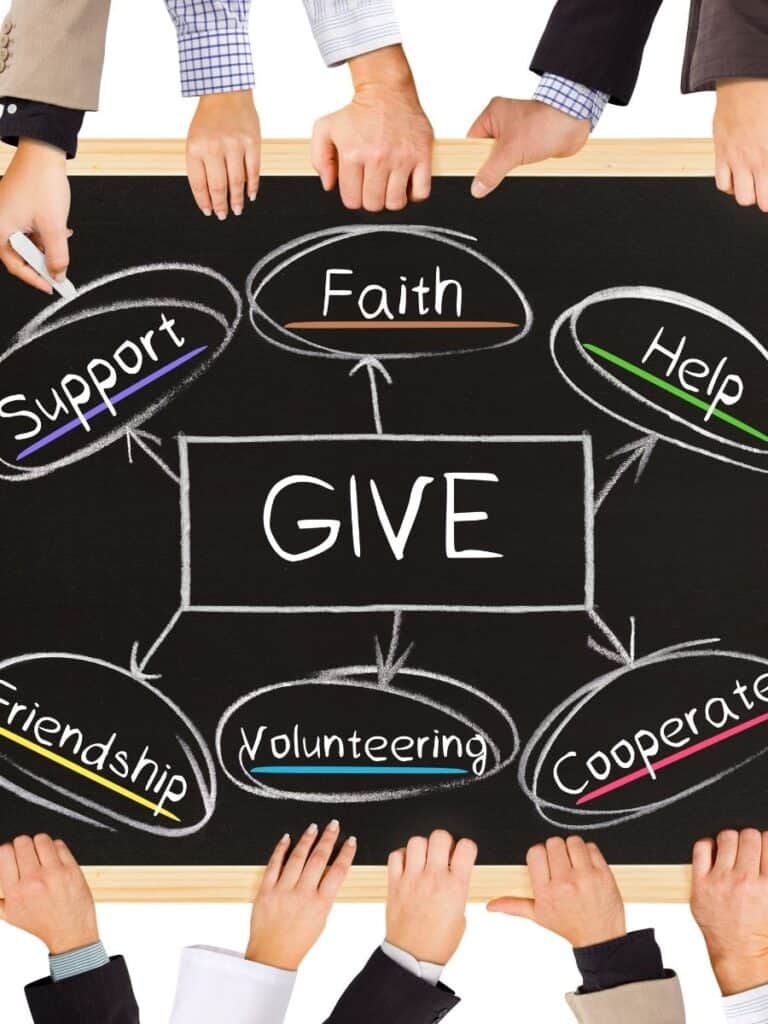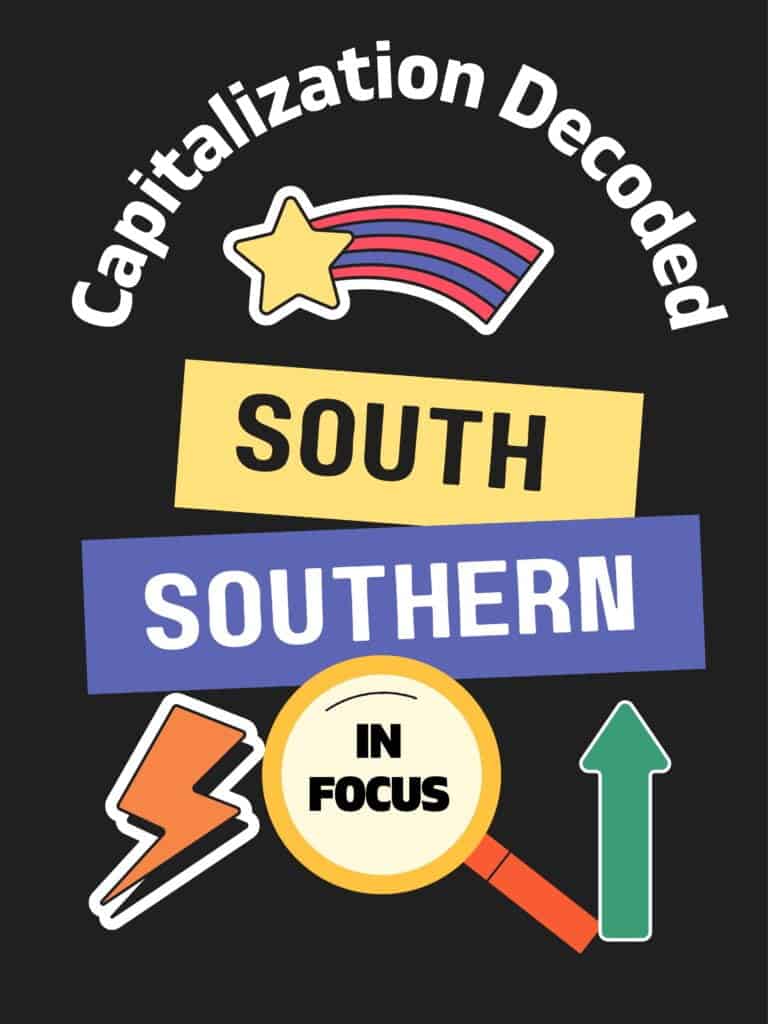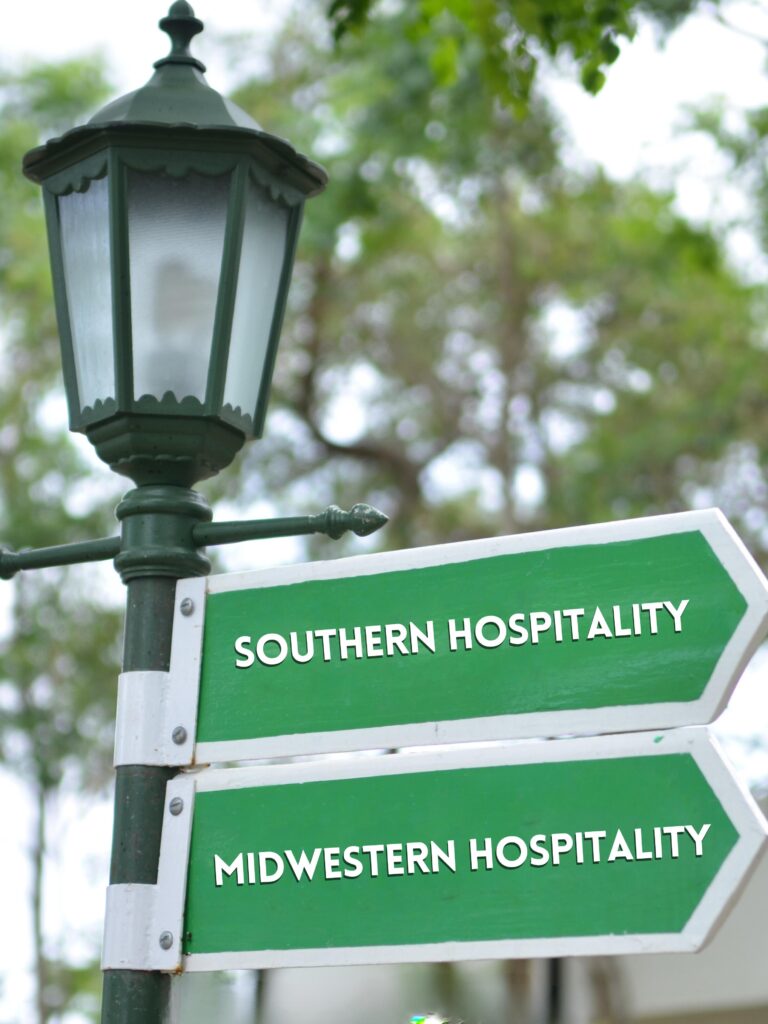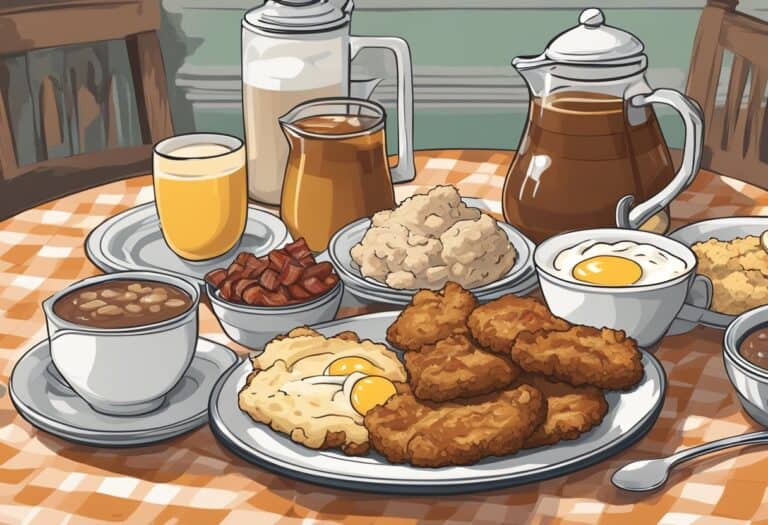Southern Stereotypes: 25 Myths About Hospitality, People & Culture, Debunked with Evidence
Southern Stereotypes often paint a caricature of the Southerner—someone with a thick Georgia accent, living in a small town, and frying up everything in sight. But how much of this is rooted in reality, and how much is mere stereotype?
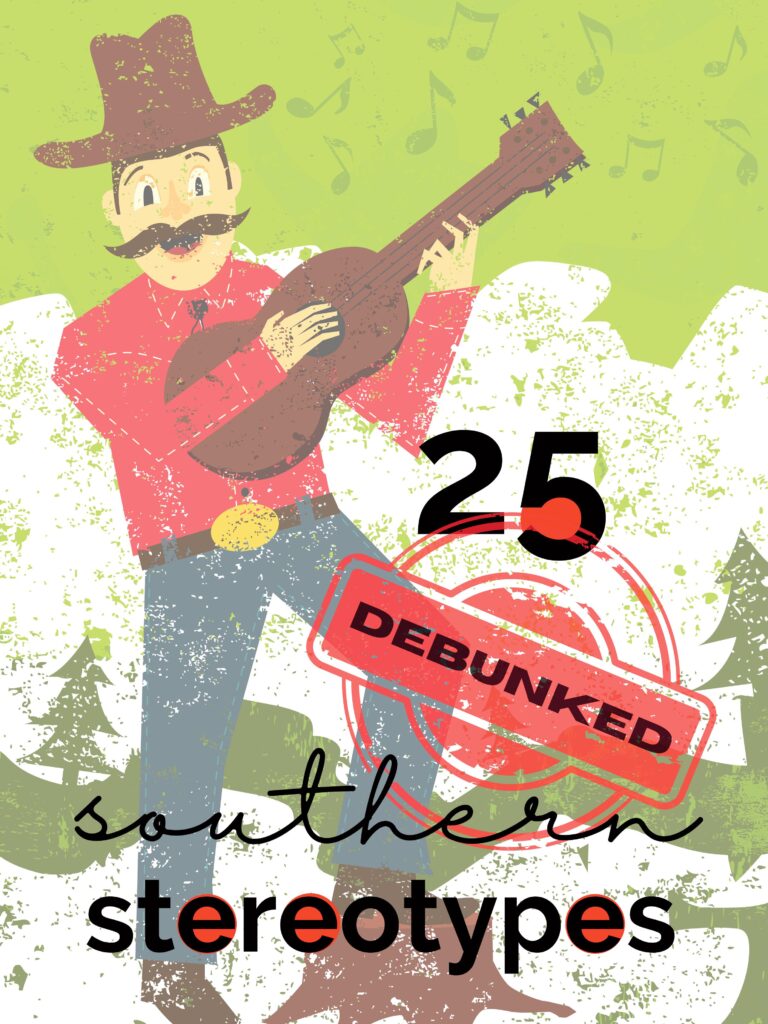
In this article, I’ll delve into Southern hospitality, people, and culture – concepts often misunderstood by Northerners and people around the United States and the world.
These ideas have been clouded by conservative and even racist assumptions. I aim to debunk these stereotypes and reveal the genuine warmth and complexity of Southern culture and its people.
The Origins and Perpetuation of Southern Stereotypes Through Media, Literature, and History
You might be wondering, where did all these Southern stereotypes come from? They’ve been around for quite some time, often perpetuated by media, literature, and historical events.
But here’s the kicker: These stereotypes don’t just exist in a vacuum. They’ve influenced how people view Southern people, culture, and hospitality, turning them into caricatures that overshadow the genuine warmth and community spirit that define the South.
Media’s Role in Shaping Perception
Have you ever noticed how media often portrays Southerners with a certain accent, usually tied to a small-town setting? While this may capture a population segment, it’s far from a comprehensive representation. Cities like Dallas are vibrant and diverse, challenging many of the stereotypes we often encounter.
Common Media Stereotypes:
- The Ignorant Southerner
- The Conservative Individual
- The Religious Zealot
Literature’s Contribution to the Narrative
Literature has also played a significant role in shaping perceptions about the American South. While classics may offer historical context, they can also perpetuate no longer universally applicable stereotypes.
Literary Impact:
- Racial implications in classics like “Gone with the Wind”
- The portrayal of Southern states during the Jim Crow era
- Modern works that highlight economic challenges
The Role of Historical Events
History has left an indelible mark on how the South is perceived. From the 1800s to the Civil Rights Movement, aspects of Southern history are celebrated and critiqued.
However, it’s crucial to separate historical events from the current practices and values that define the South, the Southern people, and Southern hospitality today.
Historical Milestones:
- The Civil War and its long-lasting impact
- The Civil Rights Movement and the progress made
- Current efforts to address inequality and discrimination
Understanding the origins of these stereotypes is essential for a nuanced view of Southern Hospitality. As we delve deeper into this topic, we’ll see much more to the South than these limiting labels suggest.
25 Stereotypes That Influence Perceptions of Southern People, Culture and Hospitality
It’s time to tackle some stereotypes about the South floating around like a biscuit in gravy. Let’s break down each stereotype and debunk it with real-life insights.
NOTE
While most of the research cited in this article is current, some data points are older yet remain the best available information on specific topics. These have been included for their valuable context and perspective.
1. Everyone in the South is Conservative
Stereotype:
If you’re from the South, you must be a conservative who votes a certain way.
Debunk:
While the South is often stereotyped as a conservative stronghold, it’s crucial to recognize the region’s political diversity. Cities like Nashville, Atlanta, Austin, New Orleans, Miami, and North Carolina’s Research Triangle are known for their progressive communities.
Moreover, a Brookings Institution article highlights that rural counties in the South are particularly racially and ethnically diverse, which often translates into a variety of political beliefs.
Therefore, assuming that being from the South automatically means you’re a conservative voter is inaccurate and unfair.
2. Southern Food is All Fried
Stereotype:
If it’s from the South, it must be fried—fried chicken, fried okra, you name it.
Debunk:
While Southern cuisine is often associated with fried foods like chicken and biscuits, it’s a diverse culinary landscape.
To illustrate this diversity, let’s explore some of the various aspects that make up Southern food:
- Culinary Hubs: Cities like Nashville have become hubs of culinary innovation, partly due to a significant influx of immigrants. Nashville is home to the largest Kurdish community in North America and features a vibrant area known as Little Kurdistan, where you can find authentic Kurdish meals.
- Grilling: The South is known for its barbecue culture, which includes a variety of meats like pork, beef, and even seafood, often seasoned with regional spices and sauces.
- Seasonal Produce: Southern cuisine extensively uses fresh fruits and vegetables, like peaches, collard greens, and sweet potatoes, which are often incorporated into both savory and sweet dishes.
- Casseroles and Desserts: The South is famous for its casseroles, like baked macaroni and cheese, and desserts like pecan pie and peach cobbler.
From kebabs in Little Kurdistan to Michelin-approved restaurants, Southern food is far more varied than fried dishes.
So, let’s not reduce Southern cuisine to a single stereotype; it’s a multicultural tapestry at its core.
3. Southerners are Racist
Stereotype:
The South is often depicted as a hotbed of racism and segregation.
Debunk:
While the South has a complex history with race, it’s important to note the active efforts to combat racism and promote inclusivity today.
Organizations like the Southern Poverty Law Center lead the charge against hate and bigotry.
Many Cities, such as Atlanta and Charlotte, have become hubs for civil rights activism.
Adding to this progress, the International African-American Museum opened in Charleston on June 27th, 2023, providing a significant educational space and reflection on African-American history and contributions.
Educational institutions across the South also offer programs focused on racial equality, and grassroots movements are making strides in large and small communities.
The South is evolving, and many residents actively participate in that change.
4. Everyone Goes to Church
Stereotype
In the South, you’ll find a church on every corner, and everyone attends church on Sundays.
Debunk:
While the term “Bible Belt” often conjures images of a uniformly religious South, the reality is more nuanced.
According to a study by the Pew Research Center, 25% of adults in the South seldom or never attend religious services, and an additional 8% consider religion to be not too important or unimportant in their lives.
So, while religion is significant for many, it’s far from a universal trait in the South.
Religious Beliefs and Practices in the South | |
|---|---|
| Aspect | Statistics |
| Belief in God | 71% Absolutely Certain, 16% Fairly Certain |
| Importance of Religion | 62% Very Important, 21% Somewhat Important |
| Attendance at Services | 41% At least once a week, 33% Once or twice a month |
| Frequency of Prayer | 63% At least daily, 15% Weekly |
| Frequency of Meditation | 44% At least once a week, 8% Once or twice a month |
5. The Southern Accent is Universal
Stereotype:
You must have a Southern drawl if you’re from the South.
Debunk:
While the “Southern drawl” is a distinct and recognizable accent, it’s not universal among Southerners. According to a study by Scientific American, stereotypes based on accents are deeply rooted but not necessarily accurate.
Accents can vary widely even within the South, influenced by factors like ethnicity, education, and exposure to other cultures.
So, while some Southerners may have a drawl, it’s far from a defining characteristic of everyone in the region.
6. The South is Stuck in the Past
Stereotype:
The South is often viewed as stuck in the 1800s, resistant to change or progress.
Debunk:
While the South is often romanticized for its historical charm, the idea that it’s stuck in the 1800s is a misconception.
- Cities like Atlanta, Austin, and Charlotte are modern technology, finance, and innovation hubs.
- Top-tier universities such as Duke, Vanderbilt, Emory, and the University of North Carolina are academic strongholds and centers for progressive thought and cutting-edge research.
- Cultural meccas like Nashville and New Orleans showcase a thriving art scene that’s anything but outdated.
The South is a region that respects its past but is vigorously carving out its future.
7. Southerners are Uneducated
Stereotype:
The South is often portrayed as a region where education isn’t a priority, and people are generally uneducated.
Debunk:
Contrary to the stereotype that the South doesn’t prioritize education, the region is home to some of the nation’s most prestigious universities.
According to U.S. News & World Report, schools like Emory, Rice, Tulane, the University of Virginia, North Carolina State University, and Georgia Tech are recognized for their academic excellence and innovation.
These institutions are not only academic strongholds but also centers for cutting-edge research. Therefore, it’s time to dispel the myth that education isn’t a Southern priority.
8. Southern Women are Submissive
Stereotype:
The idea that Southern women are submissive and exist only to serve their families is a common trope.
Debunk:
The stereotype that Southern women are submissive and only exist to serve their families couldn’t be further from the truth.
Southern women are diverse, empowered, and making significant strides in various fields, from politics to business. Many are community leaders, excel in their careers, and are strong advocates for social change.
According to a 2020 Business Insider article, several Southern states boast a significant percentage of female CEOs.
Southern States with the Largest Share of Women CEOs and Earnings | ||
|---|---|---|
| State | Percentage of Female CEOs | Average Annual Income of Female CEOs |
| Alabama | 33.62% | $117,913.88 |
| West Virginia | 34.75% | $93,774.64 |
| South Carolina | 35.20% | $76,208.75 |
| Virginia | 35.32% | $162,974.81 |
| Oklahoma | 37.32% | $149,801.99 |
9. The South is All Farmland
Stereotype:
People often think the South is all farmland and no major cities or industries exist.
Debunk:
The stereotype that the South is all farmland with no major cities or industries is woefully outdated. Cities like Atlanta, Houston, Charlotte, Nashville, and New Orleans are bustling metropolises with diverse economies, from tech to healthcare.
Moreover, the South is home to major ports like the Port of Mobile in Alabama and the Port of New Orleans, serving as crucial hubs for international trade.
Far from just farmland, the South is a dynamic region contributing significantly to the nation’s economy.
10. Southerners are Overweight
Stereotype:
With all the fried food and sweet tea, people often assume that Southerners must be overweight.
Debunk:
While it’s true that the South faces its share of health challenges, labeling the entire region as overweight is an oversimplification.
Obesity is a complex issue that varies not just by region but also by race and ethnicity.
According to the Centers for Disease Control and Prevention (CDC), obesity prevalence varies widely across states and is not confined to the South.
Many Southerners are health-conscious and active, and it’s crucial to recognize the diversity and complexity of this issue.
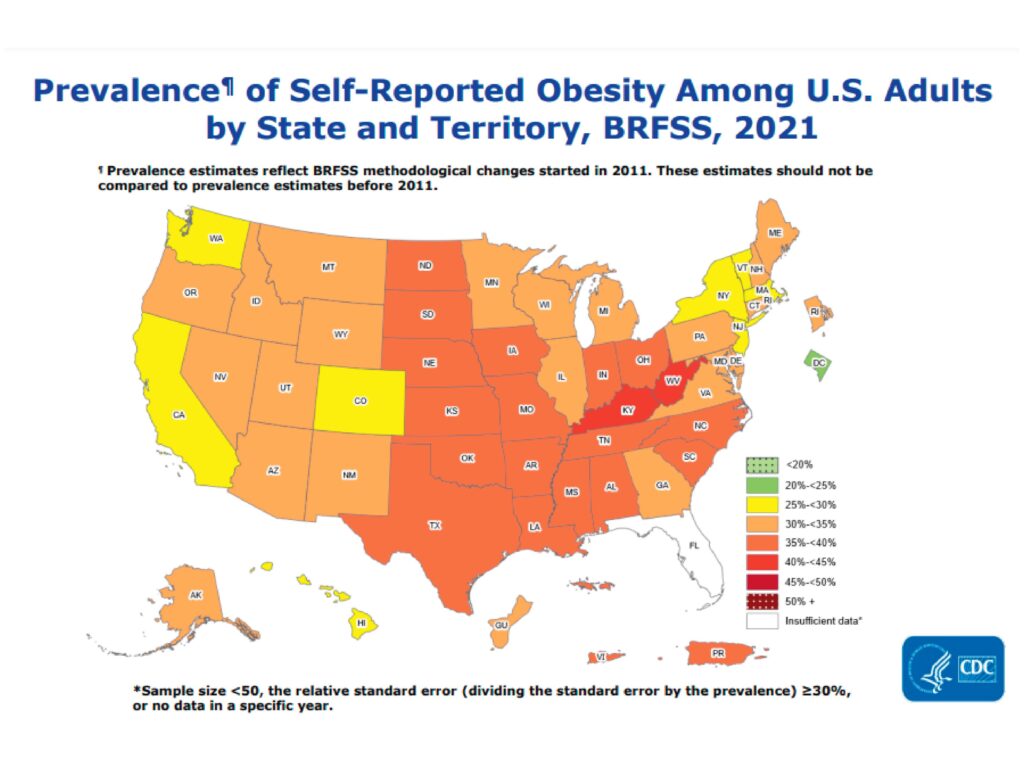
11. Southern Hospitality is Just Surface-Level Politeness
Stereotype:
Some people think that Southern Hospitality is merely a facade, a show of surface-level politeness without genuine warmth.
Debunk:
The notion that Southern Hospitality is merely a facade is a misunderstanding of a deeply ingrained cultural value. While manners and politeness are emphasized, they are often expressions of genuine warmth and community spirit.
Southern Hospitality is rooted in a sense of community and genuine care for others. It’s not just about surface-level politeness; it’s a way of life that prioritizes kindness and inclusivity.
12. The South is Only for Country Music Lovers
Stereotype:
The South is often associated solely with country music, making some think it’s the only musical genre appreciated here.
Debunk:
Contrary to the stereotype that the South is solely about country music, the region boasts a rich and diverse musical landscape.
- Hip Hop & R&B: Atlanta is a major hub for hip-hop and R&B, giving rise to artists like OutKast and Ludacris.
- Jazz: New Orleans is the birthplace of jazz.
- Blues: Memphis, Tennessee, is pivotal in blues history.
- Music Festival: Austin, Texas, hosts SXSW, one of the world’s largest music festivals, showcasing various musical styles.
Far from being a one-note region, the South’s musical taste is as varied as its cuisine.
13. Southerners are All Alike
Stereotype:
There’s a notion that Southerners are a monolithic group sharing the same beliefs, values, and lifestyles.
Debunk:
The idea that Southerners are a monolithic group sharing the same beliefs, values, and lifestyles is a misconception.
- The South is a diverse tapestry of cultures, religions, and ethnicities, from vibrant Hispanic communities in San Antonio and Miami to a significant Vietnamese population in New Orleans.
- The region’s rich African-American heritage has also profoundly influenced its culture.
- Influential figures like Martin Luther King Jr., Dolly Parton, John Lewis, and Anne Rice defy easy categorization and highlight the South’s diversity.
Far from being a uniform region, the South is as varied as its landscape, and its people are a testament to that diversity.
14. The South is Unsafe
Stereotype:
Some people consider the South a region rife with crime and unsafe.
Debunk:
The stereotype that the South is a region rife with crime and considered unsafe is an unfair generalization. Just like any other part of the country, the South has both safe and unsafe areas.
According to a SafeWise article discussing the 100 safest cities in America for 2022, violent crime rates have dropped among the safest cities, reflecting a positive trend in safety nationwide.
Many Southern cities are known for their strong sense of community and low crime rates, showing that the South is actively working to ensure the safety of its residents and visitors.
15. Southerners Don’t Care About the Environment
Stereotype:
The South is sometimes depicted as a place where environmental concerns take a backseat to industry and development.
Debunk:
The stereotype that the South disregards environmental concerns, favoring industry and development, is misleading.
- According to a 2019 Yale Program on Climate Change Communication survey, 63% of Southerners believe global warming is happening, and 51% attribute it to human activities.
- The South also hosts various environmental initiatives, like the Atlanta BeltLine, which has transformed a former railway corridor into a sustainable network of parks and trails.
- Organizations like the Gulf Coast Ecosystem Restoration Council and the Mississippi River Basin Healthy Watersheds Initiative are actively working to restore and protect natural habitats.
With a deep-rooted connection to the land, many Southerners actively engage in outdoor activities and environmental conservation.
16. Southerners are All About Guns
Stereotype:
The South is often portrayed as where everyone owns a gun and is passionate about the Second Amendment.
Debunk:
The stereotype that all Southerners own guns is not accurate.
According to the Pew Research Center, approximately 36% of Southern residents own firearms (as of April 2023), dispelling the notion of universal gun ownership. Moreover, gun ownership varies significantly by state within the region.
For instance, states like Montana, Wyoming, and Alaska have ownership rates around 64% to 66%, while Florida and Texas are closer to the national average of 35% to 45%.
This variation indicates that gun ownership is influenced by various cultural and legislative factors, not just geography. Therefore, it’s crucial to understand that gun ownership rates are based on a percentage of the population, not a universal assumption.
17. The South is Technologically Backward
Stereotype:
Some people think the South is behind the times regarding technology and innovation.
Debunk:
The stereotype that the Southern United States is technologically backward is far from the truth. In reality, the South has been a significant player in technological innovation and continues to contribute to advancements in various fields.
- Airplane: The Wright brothers conducted their first successful flight in Kitty Hawk, North Carolina, making the Southern U.S. the birthplace of aviation.
- Research Triangle: North Carolina’s Research Triangle is a high-tech hub that houses numerous tech companies and research institutions, contributing to advancements in various scientific fields.
- NASA Marshall Space Flight Center: Located in Huntsville, Alabama, this center has been instrumental in developing rockets and space technology.
- Oil Industry: The modern petroleum industry was significantly developed in states like Texas, which has led to advancements in drilling technology.
- Medical Research: Cities like Atlanta, Georgia, are home to leading research institutions like the Centers for Disease Control and Prevention (CDC), contributing to global health advancements.
While technological development may vary across the U.S., labeling the South as technologically backward is incorrect and unfair. The region has a rich history of innovation and continues to be a significant player in the tech industry.
18. Southerners Aren’t Into Fine Arts
Stereotype:
The South is sometimes seen as lacking in appreciation for the fine arts like theater, classical music, and visual arts.
Debunk:
The stereotype that the Southern United States is not into fine art is unfounded.
- Artist: The region has a rich cultural heritage and has produced influential artists such as Romare Bearden, William Eggleston, and Walter Anderson.
- Museum and Galleries: The South is home to world-class museums and galleries like the High Museum of Art in Atlanta, the Ogden Museum of Southern Art in New Orleans, and the Virginia Museum of Fine Arts in Richmond. Many smaller Southern cities and towns have vibrant arts scenes, galleries, studios, and more.
- International Festivals: Art Festivals and Events like Spoleto Festival USA and Piccolo Spoleto in Charleston further enrich the Southern arts scene, offering a platform for established and emerging artists.
The notion that the South is not into fine art is a misconception that fails to capture the region’s rich artistic heritage and dynamic contemporary art scene
19. The South is Only White and Black
Stereotype:
The racial makeup of the South is often simplified to just white and black people.
Debunk:
Allie Yee’s article, “The South’s Asian American Population is Booming — and Diverse,” published on Facing South, draws on U.S. Census Bureau data and other research to underscore the South’s burgeoning diversity.
The article specifically highlights the rapid growth and diversity within the Asian American community in the region. Moreover, it presents compelling evidence that the South is evolving into a multicultural tapestry, enriched by increasing numbers of Asian Americans and Hispanic and multiracial communities.
20. Southerners Don’t Travel or Explore
Stereotype:
There’s a notion that Southerners are homebodies who don’t travel or have much interest in the world beyond their immediate surroundings.
Debunk:
While there may be variations in travel patterns across different regions of the United States, there is no evidence to suggest that Southerners are less likely to travel or explore than people from other parts of the country.
The South is a popular destination for domestic and international travelers, with attractions such as beaches, national parks, historic sites, and vibrant cities. Additionally, many Southerners enjoy exploring their region, with road trips and weekend getaways to nearby destinations being a popular pastime.
Overall, the idea that Southerners don’t travel or explore is a misconception that does not accurately reflect the region’s rich culture and diverse travel opportunities
21. Southern Moms are Overbearing and Controlling
Stereotype:
The Southern Mom is often portrayed as a matriarch who is overbearing controlling, and insists on having a say in every aspect of her children’s lives, from who they date to what they wear to church.
Debunk:
The idea that Southern mothers are overbearing and controlling is a stereotype that is not necessarily true.
Cultural expectations of motherhood in the American South can vary depending on race, socioeconomic status, and historical context.
Family values, historical context, gender roles, religion, and community involvement can all impact cultural expectations of motherhood in the South.
Recognizing that these expectations can vary depending on a mother’s race, socioeconomic status, and other factors is important.
While some Southern mothers may be more involved in their children’s lives than fathers, this is not necessarily negative and may reflect the emphasis on family values in the region.
Overall, it is important to avoid making sweeping generalizations about Southern mothers and to recognize the diversity of cultural expectations of motherhood in the American South.
22. Southerners are All Evangelical Christians
Stereotype:
The South is often seen as a stronghold of Evangelical Christianity, and it’s assumed that most Southerners are devout Evangelicals.
Debunk:
Contrary to the common stereotype of the South as a monolithic stronghold of Evangelical Christianity, the region is far more religiously diverse.
- Georgia, for example, was the first U.S. colony to permit Jews to worship freely, granting them this right as early as 1733. This landmark decision set a precedent for religious tolerance and diversity in the South. Learn more about this from the Georgia Historical Society.
- The South is home to many religious traditions, not just Evangelical denominations. While Baptist, Methodist, and Presbyterian congregations are widespread, you’ll also find flourishing Catholic, Jewish, Muslim, Hindu, and other religious communities.
Referring back to STERETYPE #4, the previously mentioned Pew Research study shows that religious diversity is present in the South, just as it is throughout the U.S. - Not all Southerners are religious or identify with a specific faith tradition. Many people in the South identify as secular or non-religious, reflecting the wider trend of growing religious “nones” in America.
According to another Pew Research study, the percentage of Americans identifying as Christian has been steadily decreasing, and this is not exclusive to any region.
Therefore, it’s crucial to avoid making assumptions about the religious beliefs of individuals from the South and to acknowledge the region’s diverse religious landscape.
23. Southern Men are Chauvinistic
Stereotype:
Southern men are often portrayed as chauvinistic, believing in traditional gender roles and treating women as lesser beings.
Debunk:
While some individuals in the American South may hold these beliefs, it is inaccurate to generalize about all Southern men.
The American South is a diverse region with various cultural and social influences.
Additionally, the idea that traditional gender roles are unique to the South is inaccurate, as these beliefs can be found in many different cultures and regions worldwide.
It is important to avoid making sweeping generalizations about any group of people based on stereotypes and to recognize the diversity of beliefs and attitudes within any given region or culture.
24. The South is All About Football
Stereotype
You must be obsessed with college football if you’re from the South.
Debunk:
While college football is significant in Southern culture, it’s misleading to assume that all Southerners are fanatical about it. Regional variations exist; not everyone in the South shares the same interest or passion for football.
Media portrayals often emphasize the South’s connection to college football, perpetuating stereotypes that may not reflect individual preferences.
It’s crucial to acknowledge that people have diverse interests and to be cautious of reinforcing harmful stereotypes.
Although college football is a cultural staple in the South, it’s not a universal obsession among Southerners.
25. Southerners are Lazy and Laid-back
Stereotype:
The slower pace of life in the South is often misinterpreted as laziness or a lack of ambition.
Debunk:
Contrary to the stereotype that Southerners are lazy or lack ambition, the Southern United States is a hub for successful businesses and entrepreneurs.
For instance, a TechCrunch article highlighted that Atlanta has emerged as a breeding ground for billion-dollar startups.
The region’s strong hard work and determination tradition is evident in its thriving business environment, which includes rapidly growing companies and innovative startups.
Additionally, the Southern lifestyle, often characterized by a slower pace, reflects the region’s emphasis on family, community, and quality of life rather than a lack of work ethic or ambition.
Therefore, it’s essential to recognize the diversity of values, beliefs, and lifestyles in the South and to avoid making assumptions based on stereotypes.
My Final Thoughts
We’ve journeyed through 25 Southern stereotypes, peeling back the layers of misconception that often cloud our view of this rich and diverse region.
Think of stereotypes as the kudzu vines that sometimes overgrow Southern landscapes—persistent but not impossible to clear away.
By actively questioning these stereotypes and seeking the truth, we enrich our understanding and pave the way for a more nuanced appreciation of Southern culture.
So don’t just take my word for it—venture out and experience the South for yourself. You’ll likely discover it’s a tapestry woven from many threads, each contributing to its unique and enduring charm.
In dispelling these stereotypes, we’re not just setting the record straight; we’re also inviting everyone to partake in the genuine warmth, hospitality, and complexity the South offers.
Scribble Of The Day: Stereotypes Quote

What Southern stereotypes have you encountered or heard about? Share your experiences and thoughts in the comments below. Let’s keep the conversation going!

